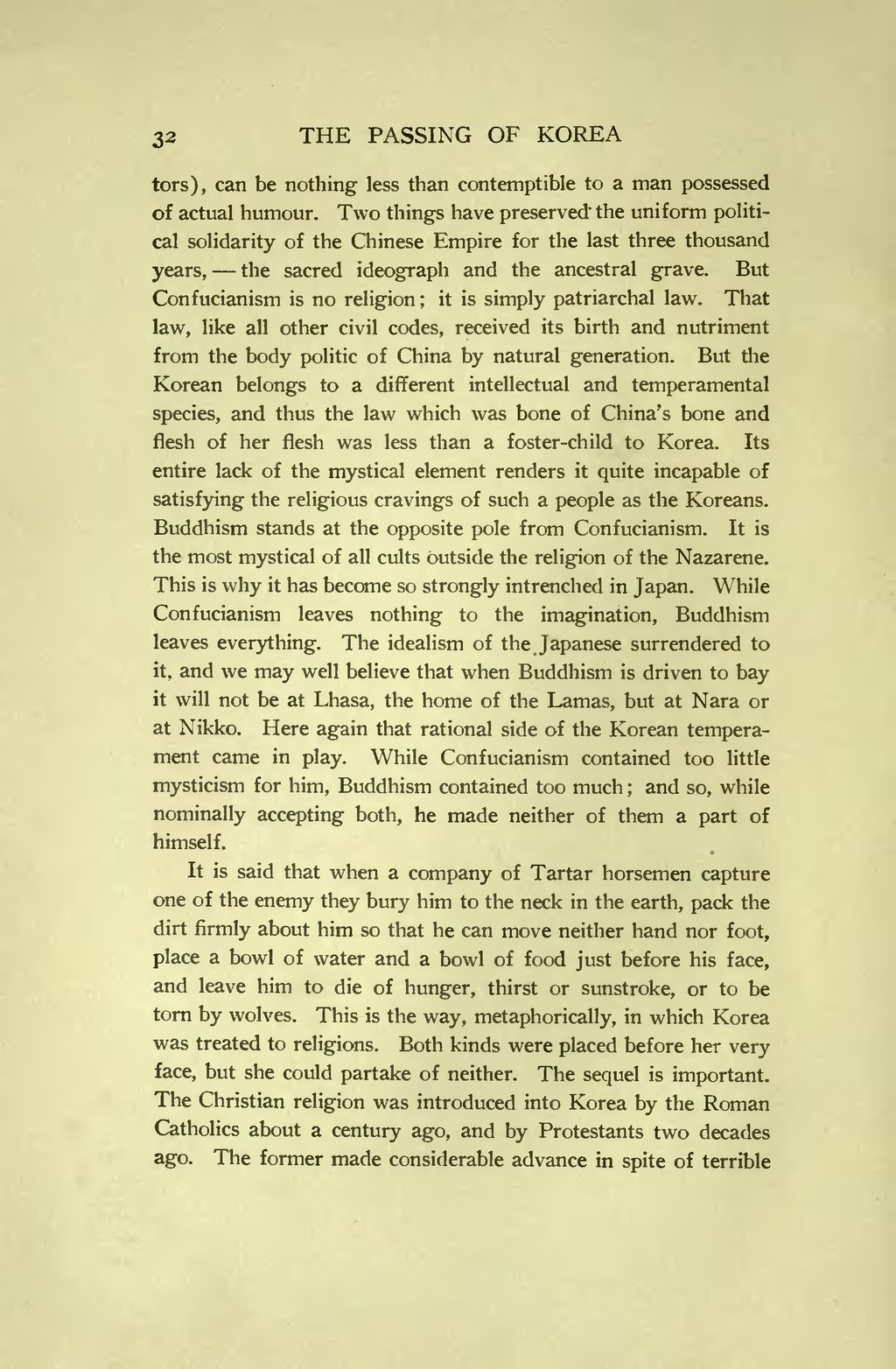tors), can be nothing less than contemptible to a man possessed of actual humour. Two things have preserved the uniform political solidarity of the Chinese Empire for the last three thousand years, the sacred ideograph and the ancestral grave. But Confucianism is no religion; it is simply patriarchal law. That law, like all other civil codes, received its birth and nutriment from the body politic of China by natural generation. But the Korean belongs to a different intellectual and temperamental species, and thus the law which was bone of China's bone and flesh of her flesh was less than a foster-child to Korea. Its entire lack of the mystical element renders it quite incapable of satisfying the religious cravings of such a people as the Koreans. Buddhism stands at the opposite pole from Confucianism. It is the most mystical of all cults outside the religion of the Nazarene. This is why it has become so strongly intrenched in Japan. While Confucianism leaves nothing to the imagination, Buddhism leaves everything. The idealism of the Japanese surrendered to it, and we may well believe that when Buddhism is driven to bay it will not be at Lhasa, the home of the Lamas, but at Nara or at Nikko. Here again that rational side of the Korean temperament came in play. While Confucianism contained too little mysticism for him, Buddhism contained too much; and so, while nominally accepting both, he made neither of them a part of himself.
It is said that when a company of Tartar horsemen capture one of the enemy they bury him to the neck in the earth, pack the dirt firmly about him so that he can move neither hand nor foot, place a bowl of water and a bowl of food just before his face, and leave him to die of hunger, thirst or sunstroke, or to be torn by wolves. This is the way, metaphorically, in which Korea was treated to religions. Both kinds were placed before her very face, but she could partake of neither. The sequel is important. The Christian religion was introduced into Korea by the Roman Catholics about a century ago, and by Protestants two decades ago. The former made considerable advance in spite of terrible

